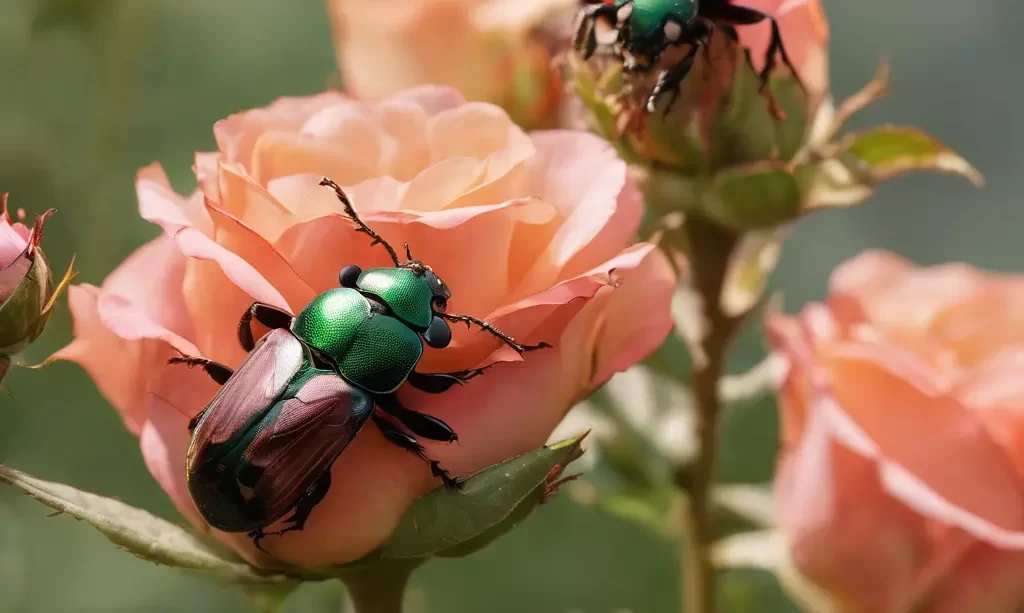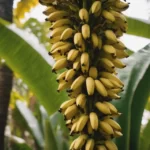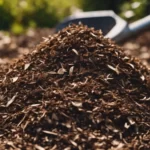Roses, with their captivating beauty and fragrance, are a staple in many gardens. However, their allure extends beyond human admirers to a range of animals, making them a common target in the natural world. This article explores the various animals that are drawn to roses, often to the dismay of gardeners who strive to protect these cherished plants.
Mammals That Favor Roses
Among mammals, deer are perhaps the most notorious consumers of roses. These graceful creatures are often attracted to gardens by the scent and sight of rose bushes. They tend to feed on the flowers, buds, and even the leaves of rose plants, leaving behind a telltale sign of their visit – a cleanly eaten plant.
Rabbits also have a taste for roses, particularly favoring young shoots and tender rosebushes. Their small size allows them to sneak into gardens easily, where they nibble on the lower leaves and buds of rose plants. Gardeners often discover their presence through the damage they leave at the base of the plants.
Squirrels, though not as common a pest to roses as deer or rabbits, can also pose a threat. These agile animals are known to occasionally feast on rosebuds and blooms, especially when other food sources are scarce. Their interest in roses, however, is usually sporadic and not as destructive as that of deer or rabbits.
Birds and Their Interest in Roses
Birds, including some species of parrots, are also attracted to roses. They are often drawn to the petals and buds, consuming them for their moisture and nutritional content. While their impact is generally less destructive than mammals, their feeding can still leave roses looking tattered.
Another important aspect of birds’ interaction with roses is their role in consuming rosehips, the fruit of the rose plant. These fruits are rich in vitamins and a favored winter food source for many bird species. By eating rosehips, birds play a crucial role in seed dispersal, aiding in the propagation of rose plants in the wild.
Insect Visitors to Rose Plants
Insects are another group that frequently interacts with rose plants. Japanese beetles are particularly notorious in this regard. These pests are drawn to roses and can cause significant damage, devouring both the foliage and the flowers. They often leave the roses with a skeletonized appearance, having eaten away the leaf material between the veins.
Aphids are also common on rose plants. These small insects feed on the sap of the roses, clustering in large numbers on new growth and the underside of leaves. While individually they cause minimal damage, in large numbers, aphids can weaken a rose plant, making it more susceptible to disease and other stress factors.
Another insect to consider is the rose sawfly. The larvae of these sawflies are known to consume rose leaves, often resulting in significant defoliation. Unlike other insects that might nibble at the edges or suck sap, sawfly larvae can eat entire leaves, leaving behind only the skeleton.
Domesticated Animals and Roses
Domestic animals, particularly dogs and cats, may also show interest in roses. While they are less likely to consume the plants, their curiosity can lead to accidental damage. Dogs, for instance, may trample rose bushes during play, or dig around them, while cats might use the soft soil of rose beds for their needs.
Horses and goats, if they have access to gardens, can graze on rose plants. Both animals are known to eat a wide variety of vegetation, and roses are no exception. Their feeding can be quite destructive, as they are capable of stripping a rose bush quite quickly.
The interaction between domestic animals and roses is not only a matter of potential damage to the plants but also poses a risk to the animals themselves. Roses have thorns that can cause injury, and some parts of the plant can be toxic if ingested in large quantities. It’s important for pet owners and livestock keepers to be aware of these risks.
The Ecological Impact of Animals Eating Roses
The consumption of roses by various animals has significant ecological implications. While often perceived negatively by gardeners, these interactions are a natural part of the ecosystem. For instance, the feeding habits of deer and rabbits can influence the growth and health of rose plants, sometimes even stimulating more vigorous growth after mild browsing.
Insects like aphids and Japanese beetles, while detrimental in large numbers, are also part of the food web, serving as food for predatory insects and birds. This interplay can help maintain a balanced garden ecosystem when not in excess. However, managing these insect populations is crucial to protect roses from severe damage.
Conclusion
Roses, known for their beauty and fragrance, are a magnet for a variety of animals, ranging from deer and rabbits to insects and domestic pets. Each of these animals interacts with rose plants in different ways, sometimes beneficial, sometimes harmful. Understanding these interactions is essential for gardeners looking to protect their roses while maintaining a healthy, balanced garden ecosystem.
Recognizing the roles these animals play in nature helps gardeners make informed decisions about pest control and garden management. By balancing the needs of the plants with the ecological role of their consumers, gardeners can enjoy the beauty of roses while coexisting with the local wildlife. The presence of animals around rose plants is a reminder of the interconnectedness of our gardens with the broader natural world.



